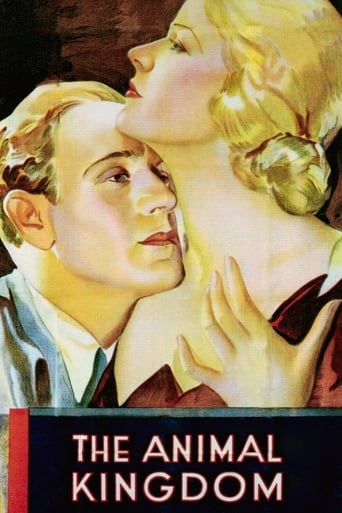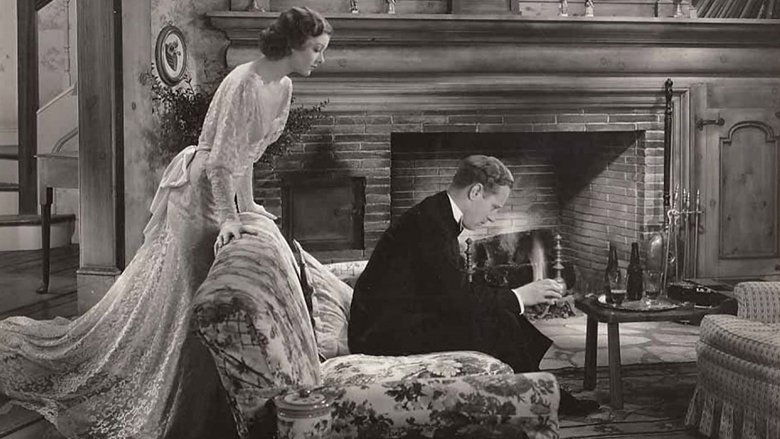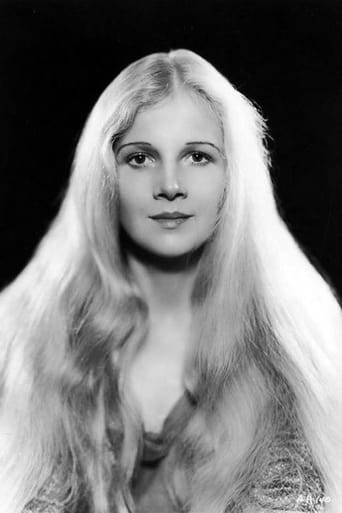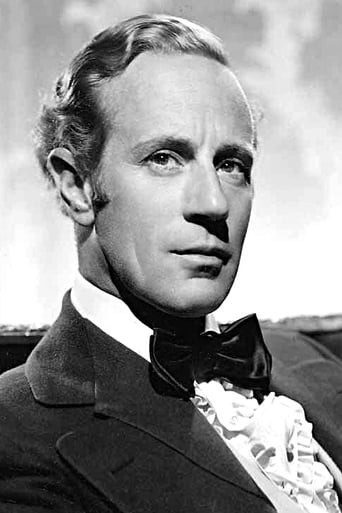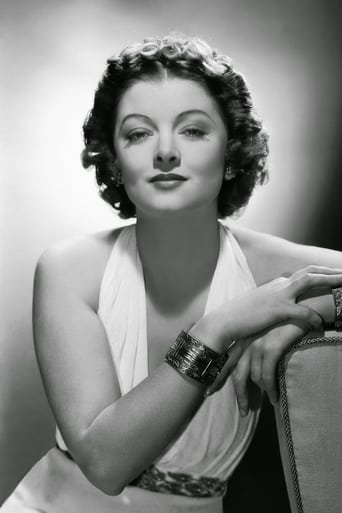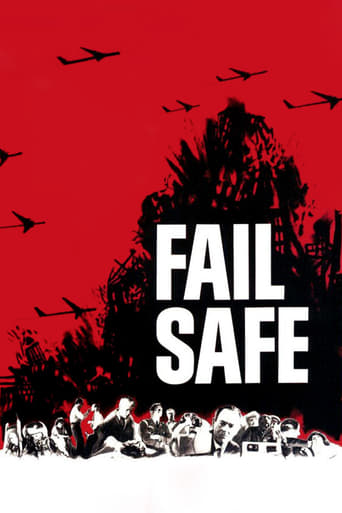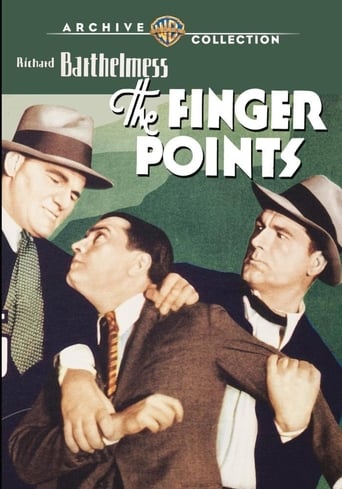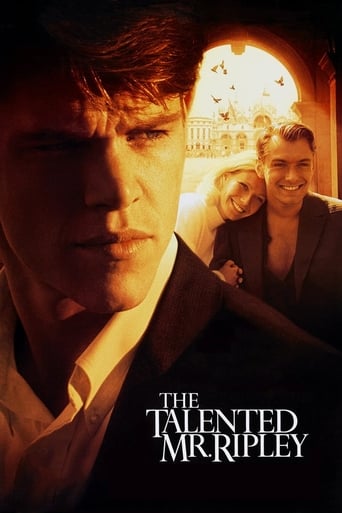The Animal Kingdom (1932)
Tom Collier has had a great relationship with Daisy, but when he decides to marry, it is not Daisy whom he asks, it is Cecelia. After the marriage, Tom is bored with the social scene and the obligations of his life. He publishes books that will sell, not books that he wants to write. Even worse, he has his old friend working as a butler and Cecelia wants him fired. When Tom tries to get back together with Daisy to renew the feelings that he once felt, Daisy turns the tables on him and leaves to protect both of them.
Watch Trailer
Cast


Similar titles
Reviews
Fantastic!
if their story seems completely bonkers, almost like a feverish work of fiction, you ain't heard nothing yet.
The plot isn't so bad, but the pace of storytelling is too slow which makes people bored. Certain moments are so obvious and unnecessary for the main plot. I would've fast-forwarded those moments if it was an online streaming. The ending looks like implying a sequel, not sure if this movie will get one
The film's masterful storytelling did its job. The message was clear. No need to overdo.
The IMDb billing on this film lists it as a comedy and drama, in that order. But for a few witty lines in it, "Animal Kingdom" has no trappings of humor. The sometimes funny relationship between Tom (played by Leslie Howard) and Red (played by William Gargan) could hardly lift this to a comedy level. Surely not above the drama. There is an outside chance that this really is a sophisticated comedy – but then it's over my head (a distinct possibility, I admit). But from the story, script and dialog, I don't see that. Rather, I see the main plot as a drama. Tom is a well-to-do son who has been living a carefree lifestyle with few responsibilities. He has been living and mixing with artists and writers who work at their trades while living a bohemian lifestyle. Tom has a small publishing house that prints artistic and cultural works, but it doesn't earn him much money. This has gone on for some years. Tom's father, Rufus Collier (played by Henry Stephenson) considers his son a wastrel. He is anxious that he settle down and take on the responsibility associated with his wealthy class. Two women are prominent in Tom's life. Daisy, played by Ann Harding, has been Tom's friend and bohemian consort for his many carefree years. Daisy is an artist and aspiring painter. She and Tom have worked on publications together over the years. Tom had proposed to her in the past, but she declined. Cecelia, or "Cee" is played by Myrna Loy, and is Tom's fiancé. Daisy had been away in Europe for a long time, and Tom had just recently met and fallen in love with Cee. Other players have their parts – friends of one or the other main characters. Rufus likes Cee and is glad that she and Tom are getting married. This story plays out with pathos as Tom parts from his friends. Daisy returns to New York, now hoping to marry Tom. Tom tells her he is in love with Cee, but he wants to remain friends with Daisy for life. We don't see the wedding, but after Tom and Cee are married, Cee influences him to a sale/merger of his printing house to produce dime novels that make money instead of the works of quality he had preferred. Daisy decides it's best to break completely with Tom's friendship, and she does so. Tom is left without much desire or hope, and we see him give in to Cee's every wish. Tom has become a most pitiable person.Owen Fiske (played by Neil Hamilton) is an attorney for Rufus. He is attracted to Cee. At one point, he says to Cee, "Hang it all, Cee! Tom doesn't want to sell the Bantam." Cee says, "Tom doesn't know what he wants?" In another scene, Red serves Cee a drink and says, "You're a strange girl, Cee. And a pretty cruel one too." And in another scene, Daisy says to Tom, "I pity you will all my heart."There is more – with Cee showing signs of infidelity. She now seems to disdain her husband, whom she sees as a weak person. She is a woman who wants wealth and power. In the end, Tom signs over a very hefty check his father had made out to him. He leaves it on the fireplace mantle for Cee, and walks out. We are left to imagine that he is going off to find Daisy, lost freedom and true love.Perhaps a scene in which we learn of the title of this play and film will help us better understand it. This is after Daisy returns from Europe and Tom tells her he plans to marry. Daisy says, "Tom! Tom, do you have to marry here?" Tom replies, "I want to marry here." Daisy: "I thought maybe you just wanted her, or wanted her most awfully." Tom: "No, no, no. It's more than that. Much more." Daisy: "I don't see how you can quite tell that. For all our big talking, you know, we do still belong to the animal kingdom."This film has some big name stars of its day. Leslie Howard was an established actor in England and the U.S. He was an RAF pilot and was killed when his plane was shot down during World War II. Harding and Loy had been around a while and would have many more roles and much better performances. Only Howard seemed to put much life into his role in this film. Harding, in particular, seemed wooden and flat. Still, for an interesting story and overall good cast, "Animal Kingdom" is an enjoyable watch.
The unusual theme for this very intelligent and enjoyable film has the decent self sacrificing mistress (Ann Harding) pitted against the merciless, social climbing wife (Myrna Loy).In 1932 Ann Harding was at the peak of her career and this film has become her most popular. She was the epitome of style and class, with her silvery long blonde hair (done in a bun on the nape of her neck), natural beauty and low husky voice. She was a very unconventional beauty for the period. She was also RKO's most prestigious star - until Constance Bennett came along with a more down to earth appeal. So fans, going to see her in "The Animal Kingdom" knew exactly what to expect. Myrna Loy, also had not found her "Nora Charles" persona and was still being given roles that required her to be anything but nice. Karen Morley was producer Selznicks' first choice for Cecilia but Leslie Howard demanded Myrna Loy.After Tom's father (Henry Stephenson) finishes bemoaning the fact that Tom (Leslie Howard) has wasted his life, Cecilia (Myrna Loy, looking completely ravishing) confesses that she is going to marry Tom. Tom is in an "unconventional relationship" with Daisy Sage (Ann Harding), a free spirited artist, and the night of his engagement, he feels he must tell her. Daisy also has some news - she feels she has real talent as an artist, and she wants to marry Tom so she can have children!!! Once she realises Tom is about to marry Cecilia she finds she cannot continue their old relationship.Once they are married Cecilia tries desperately to mold Tom to fit in with her circle of boring friends. She convinces him to publish a potboiler, a book Tom is ashamed of - but it becomes a best seller among her friends. She then convinces him to fire Regan (William Gargan is just stunning in the role he originated on stage). Regan is an old friend of Tom's, an ex prize fighter who Tom keeps on as a butler. He is very funny - he gets drunk and mingles with the guests, much to Cecilia's disgust. The dialogue is pretty racy - "a foolish virgin me - well foolish anyway" says Daisy, when she learns of Tom's engagement. Rather than resume their old relationship Daisy flees to Canada. When she returns Cecilia rings her to invite her to a surprise party. Cecilia feels that by getting all his old friends together Tom will realise what a lot of riff raff they are. The party is not a success - Daisy spends her time reading a new novel that Tom is due to publish and realises how low he has fallen. Behind his back Cecilia convinces Owen (Neil Hamilton), an old flame and also a successful publisher to buy Tom out and take over the Bantam press. Daisy overhears and also sees Cecilia's behaviour towards Owen and realises that Cecilia is not good enough for Tom and is also the cause of his loss of high ideals and integrity.Cecilia believes that Tom has excepted a huge cheque from his father and shows herself as she really is. Tom is surprised at how much the room she has decorated resembles a London brothel he had visited. Even though it is only suggested, it is pretty racy dialogue even for pre- code times. He then realises that she is acting like a high class prostitute - promising him privileges that she had been withholding (the locked bedroom door, his desire for children etc) because of the money she thinks will be hers.I thought it was a super film, quite shocking in it's suggestions, even for the time. The ending was also in keeping with the pre-code code and I can heartily recommend this entertaining and intelligent movie.Highly Recommended.
This dreary adaptation of Philip Barry's Broadway play has two things going for it: a stunning Myrna Loy and some interesting exchanges of dialogue that would have been censored if the film had been released a couple of years later when Production Code enforcement was strengthened. On the whole, however, this film stagnates as filmed stage plays often do. The camera just sits there focusing on people entering rooms and talking, talking, talking. The story is familiar to Barry aficionados: the conflict between the old northeastern Puritan establishment values and the new, modern Bohemian mindset. This conflict is played out by Leslie Howard, nonconformist publisher of arty books whose upper crust traditionalist father disapproves of his offbeat lifestyle. Howard chooses to marry rich girl Myrna Loy while his old friend, whom he really loves but doesn't realize it at the time, is abroad. The latter character is a Bohemian enacted by Ann Harding who at one point says, and I paraphrase, "I have no money but it doesn't bother me." What?! This supposed "Bohemian" lives in a large, spotless, finely appointed apartment with a picture-window view of the East River, is dressed and coiffed as elegantly as any wealthy blueblood and seems to travel the world at the drop of a hat. Anyone with an apartment, wardrobe and lifestyle like that in 1932 could hardly "have no money." *** POSSIBLE SPOILER*** Harding is way too stodgy for her part and we end up sympathizing with the ostensibly cruel, superficial Loy who is actually so sweet, alluring, sexy, gorgeous and youthful that it comes as a shock when she is revealed to be a nasty, hard soul at the end. In addition, although Harding gets top billing with Howard, it is Loy who occupies the most screen time and who rivets our attention. Howard is at first too humdrum to be convincing as an unconventional rebel, but his later actions during intimate scenes with Loy fire up the screen, abetted by suggestive conversation. This is about as far as Hollywood would go in the carnal direction until the 60s. William Gargan is also on hand as Howard's butler who treats his boss as an equal, drinks excessively and launches into talking jags that intrude tiresomely on the business at hand. A similar subsidiary character from a later and far superior Barry film adaptation (Holiday, 1938) serves the story better. The ideal cast for this film would have been Franchot Tone as the lead and Loy/Harding in reversed roles.
1st watched 12/7/2004 - 7 out of 10(Dir- Edward H. Griffith): Surprisingly honest and frank drama about a man who can't decide between two women in his life. One, ties him down to a commitment and is a solid person and the other doesn't ask for a commitment and is a great friend but doesn't have the stability of the first. I never did figure out why the movie was called "Animal Kingdom", but I believe it has to do with how we as humans tend to become survivalists like those in the animal kingdom do when things aren't going well. This is one of the most complex character studies that I've seen in awhile especially from a movie made so long ago. The acting is kind of up-and-down but the story is consistently intriguing as we try to figure out what Tom(the book publisher) is going to do in his life from one moment to the next. Every character in this story is interesting in one way or another and the movie works hard to follow these characters and not just make a happy-go-lucky movie experience. There is a uniqueness in this film's open attitude towards love and friendship and how to piece them together that I have not seen often.

